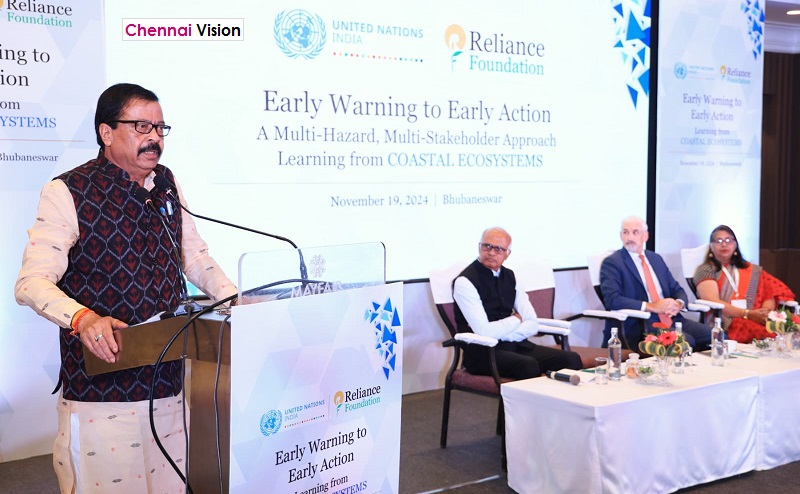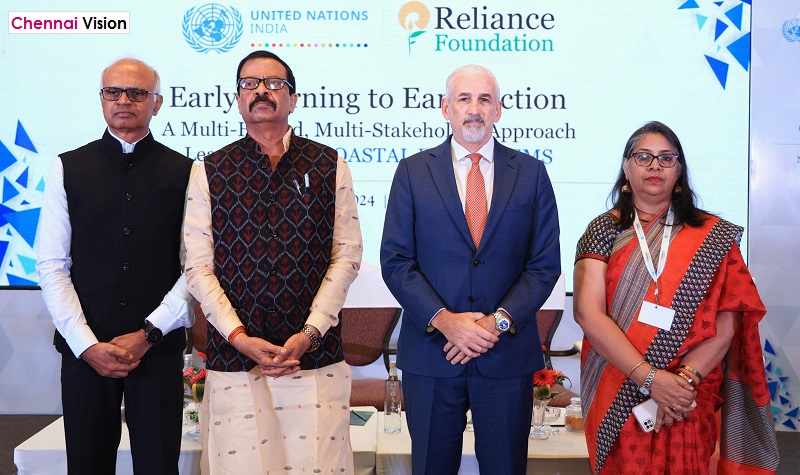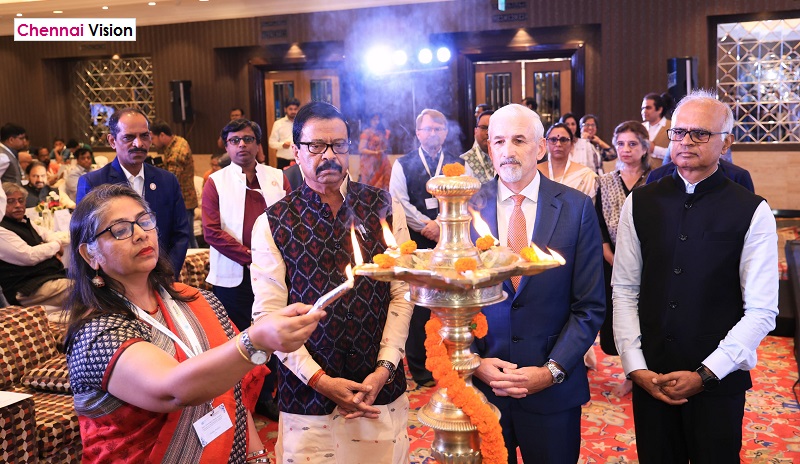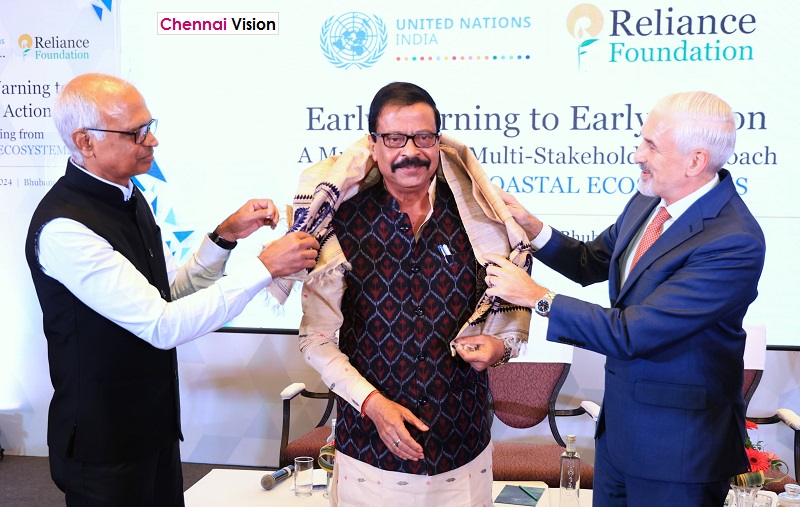Early Warning, Early Action: Reliance Foundation – UN India convening brings experts, ideas together in Odisha
• Stakeholders from multiple Indian states and countries in the Global South came together.
• Learnings from coastal ecosystems shaped discussions about ways to strengthen early warning and action.
• The convening in Odisha marks a first in a series to capture best practices, identify innovations and drive meaningful policy outcomes for a more resilient future.
Building new ideas to strengthen early action during disasters, Reliance Foundation and the United Nations India convened stakeholders from the Global South to deliberate multi-hazard, multi-stakeholder approaches to early warning, here yesterday.
The Odisha convening, titled ‘Early Warning to Early Action – A Multi-Hazard, Multi- Stakeholder Approach: Learning from Coastal Ecosystems’, is the first in a series of convenings that Reliance Foundation and the UN India are organising. The gathering highlighted Odisha’s leadership in early warning and early action in a disaster-prone coastal area with focus on livelihoods and gender.
Experts from state and national disaster management agencies including the National Disaster Management Authority, India Meteorological Department and Indian National Centre for Ocean Information Services, UN organisations, researchers, policy experts, academia and non-governmental organisations were part of in-depth discussions.
The Chief Guest at the convening, Mr. Suresh Pujari, Minister for Revenue and Disaster Management, Government of Odisha, said, “We are working collectively to further strengthen early warning systems, and we are happy that Odisha has been chosen as the first state to start this series of deliberations. The Odisha government works with various stakeholders on minimising the intensity of natural disasters. We will be working with the UN, Reliance Foundation and all other stakeholders for suggestions and technological assistance. We request the organisations we work with to find ways to integrate disaster prediction with information analysis for greater accuracy in early warnings.”
“As climate change drives more extreme events, there is a need to strengthen impact-based forecasting to ensure it translates more effectively to local action. We have witnessed the lifesaving potential of early warnings while serving communities during cyclones, floods, and other extreme events. India is pioneering knowledge advancement in rapidly advancing early warning systems. We have been driving innovative solutions in early warning systems through extensive use of technology and approaches for effective reach and impact. The convening series, being organised by Reliance Foundation and the United Nations in India office, aims to work collectively with various stakeholders to realise the goal of translating knowledge into local action,” said Mr. Jagannatha Kumar, CEO, Reliance Foundation.
“Answering the UN Secretary-General’s call for Early Warning for All across the world, the convening yesterday organised by the UN in partnership with Reliance Foundation is the first in a series of convenings on DRR. We’re also showcasing the Government of Odisha’s leadership in Early Warning Systems for disaster response, a crucial story to tell and an opportunity to share best practices and knowledge with other states and countries in the Global South. The UN remains committed to supporting these efforts through our various agencies, working closely with the government, civil society, and partners like Reliance Foundation to strengthen Early Warning Systems and build community resilience,” said Mr. Shombi Sharp, UN Resident Coordinator for India.
Experts focussed on the present advancements in early warning systems, sharing varied perspectives on challenges and ways to strengthen early action, including deliberating approaches to future-proof disaster preparedness in the panel discussions ‘Current State of EWS and Early Action: Assessing effectiveness’ and ‘Future Proofing and Innovation towards Integrated Early Warning System’. The sessions also underscored the need for multi-hazard approaches and integration of socio-demographic information with meteorological data for targeted early action messaging.
Through discussions focussed on learnings from recent implementation of early warning systems in coastal states, youth and child-led disaster risk reduction initiatives and integration of livelihood protection along with early warning systems.
The convening facilitated South-South knowledge exchange with experts from Sri Lanka and Bangladesh sharing their best practices and highlighting the importance of strengthening collaborations. The panellists also reflected on pre-convening field visits to villages in Balasore and Bhadrak districts to see the work of Reliance Foundation and the UN India, in collaboration with the administration. A curated walk at the convening helped delegates experience innovations and further enhanced the knowledge exchange process on the country’s efforts to strengthen early warning and action.
The Early Warning to Early Action convening series aims to document best practices, identify innovations, and deliver impactful policy-level outcomes to save more lives and livelihoods.




